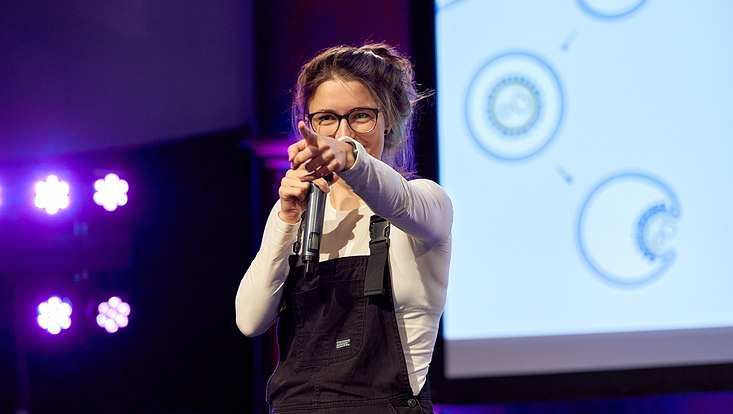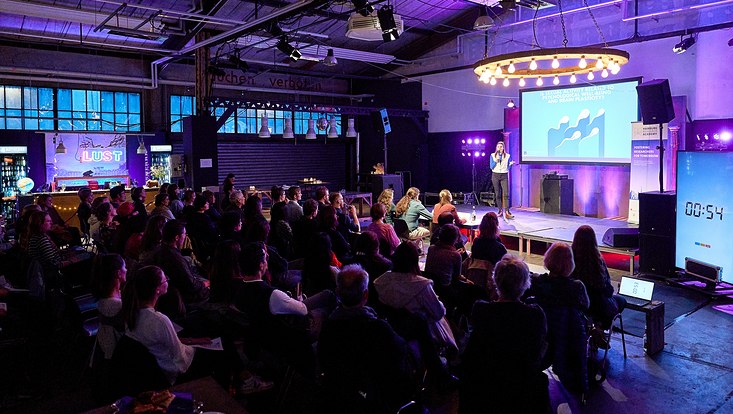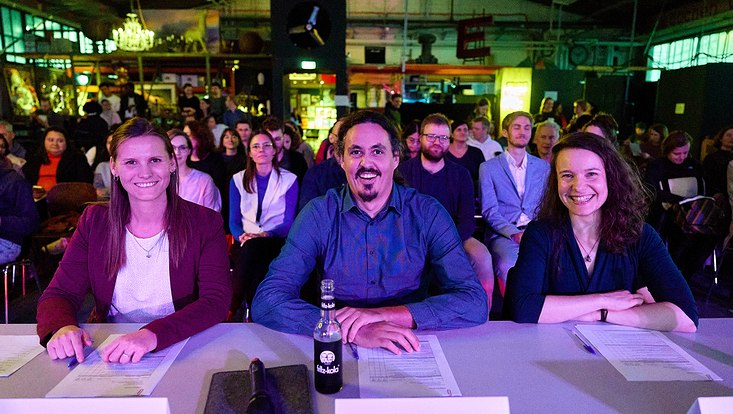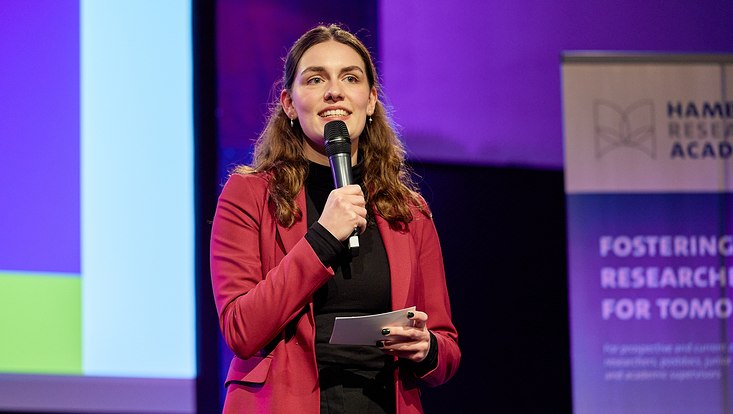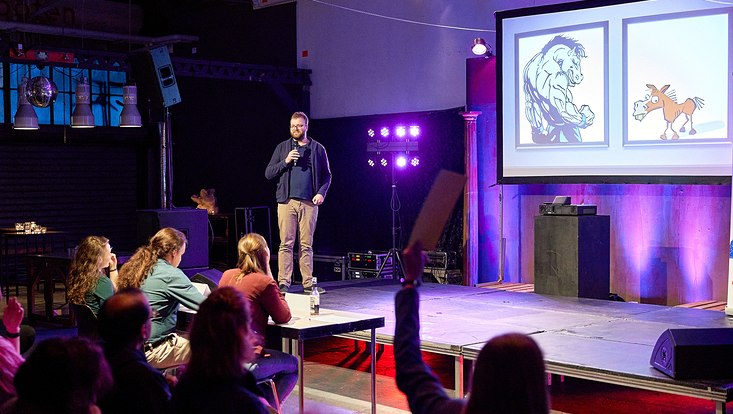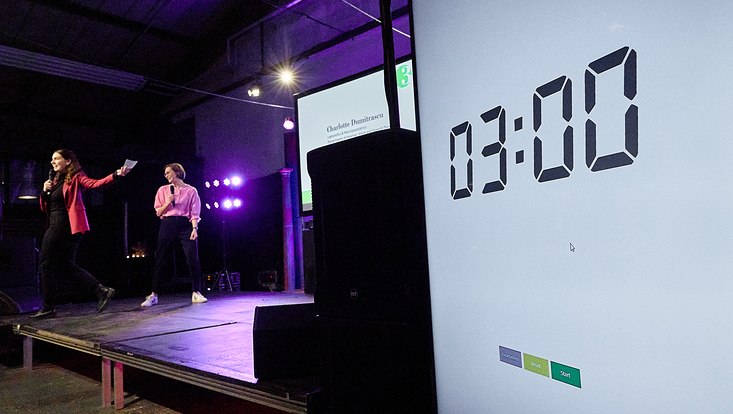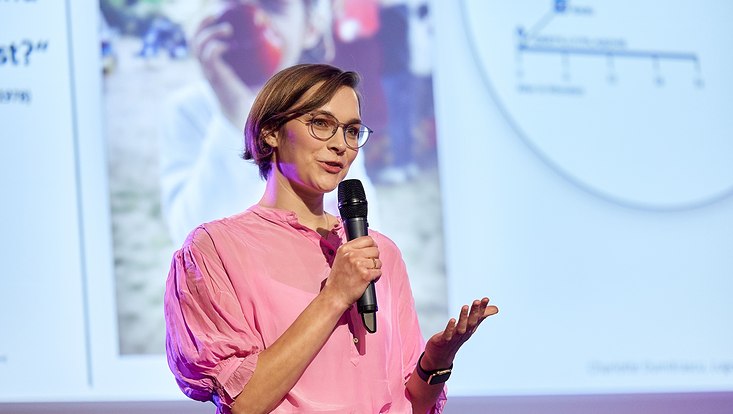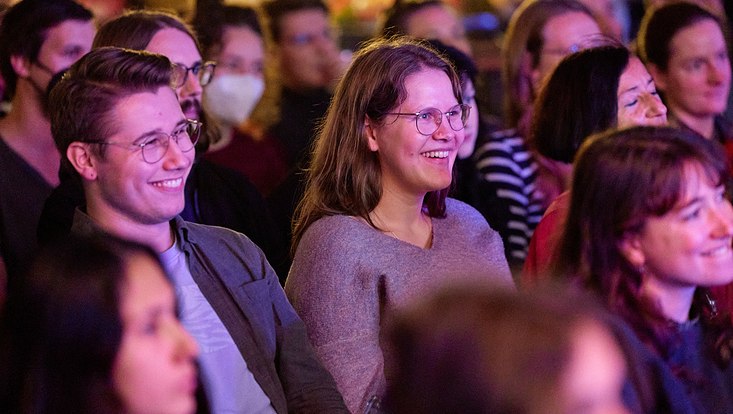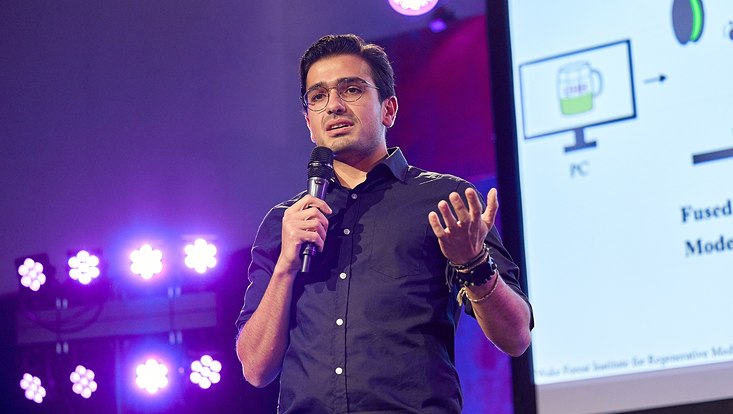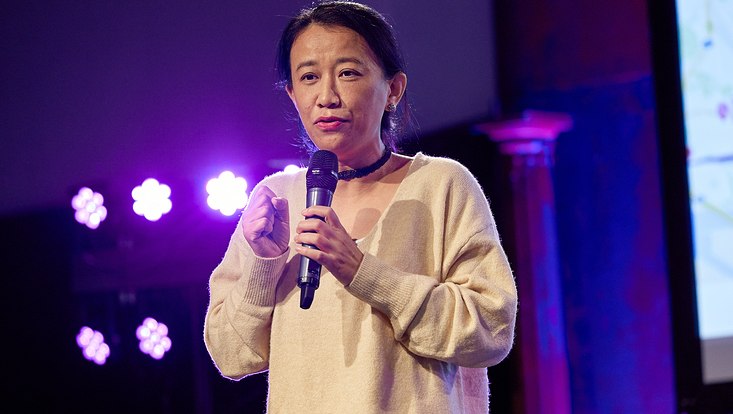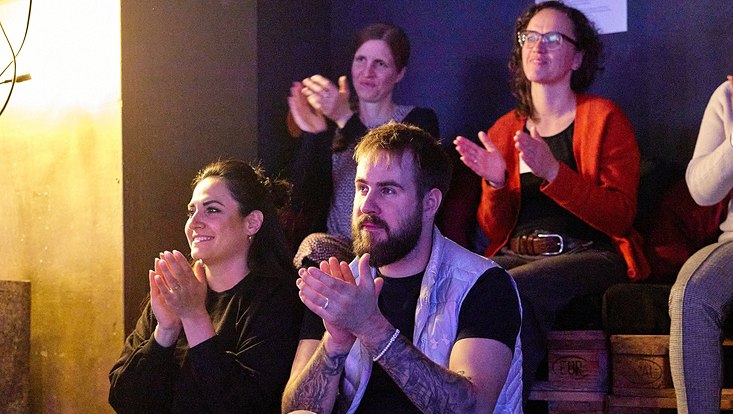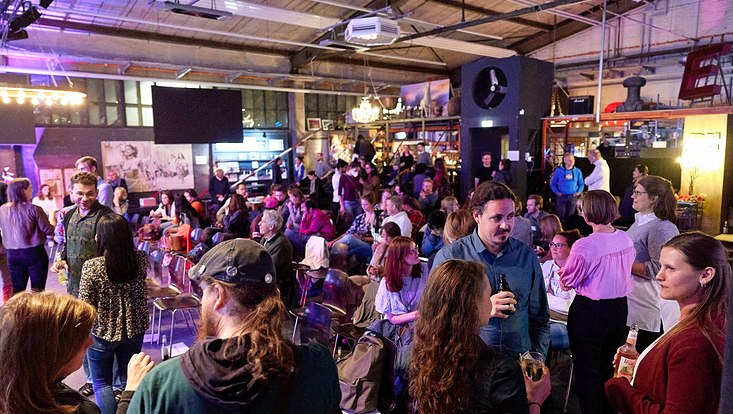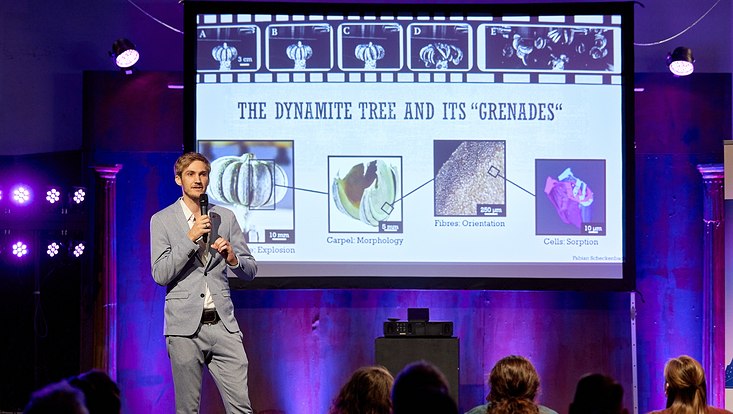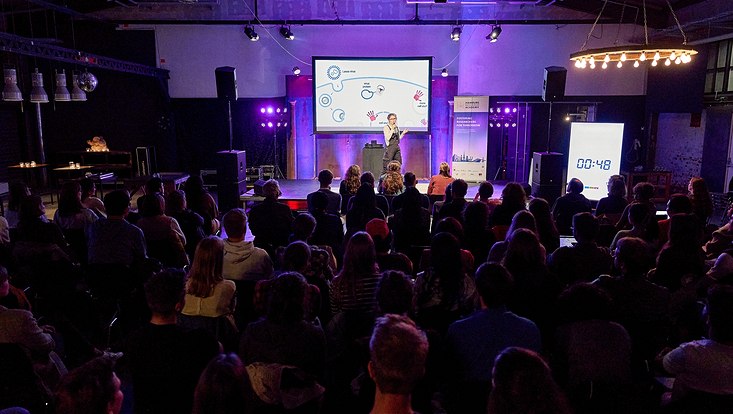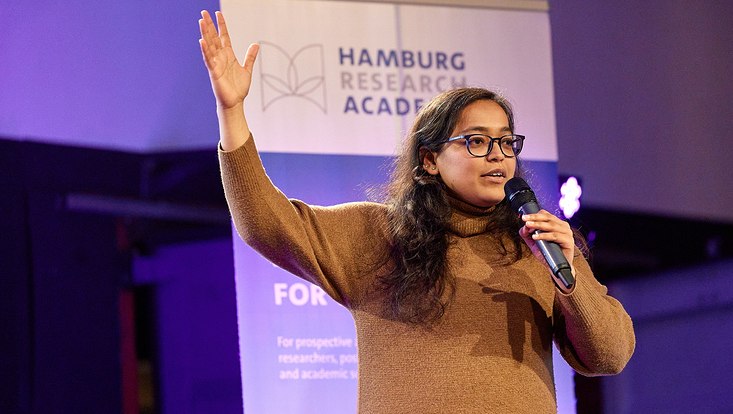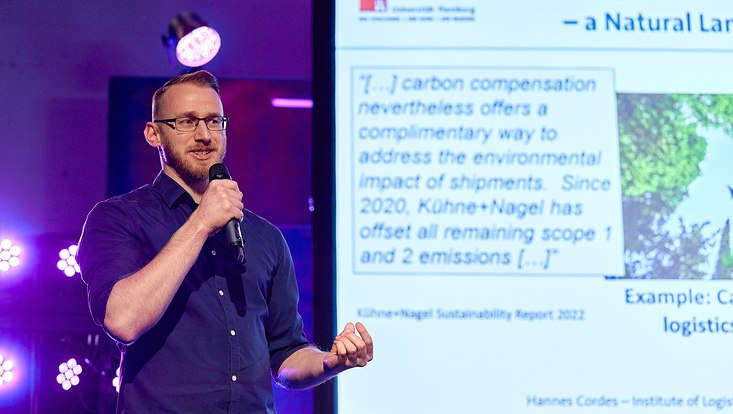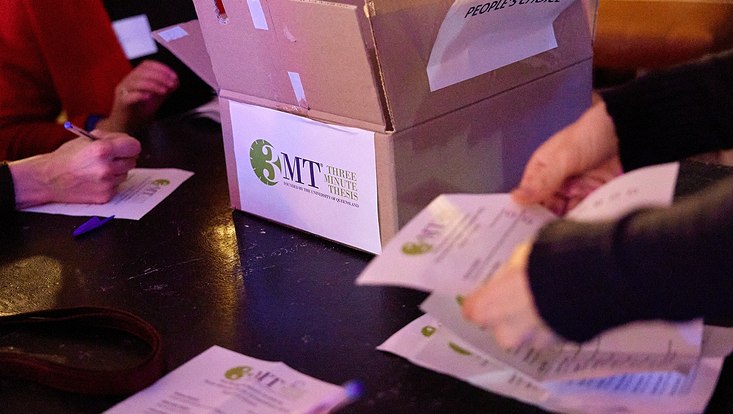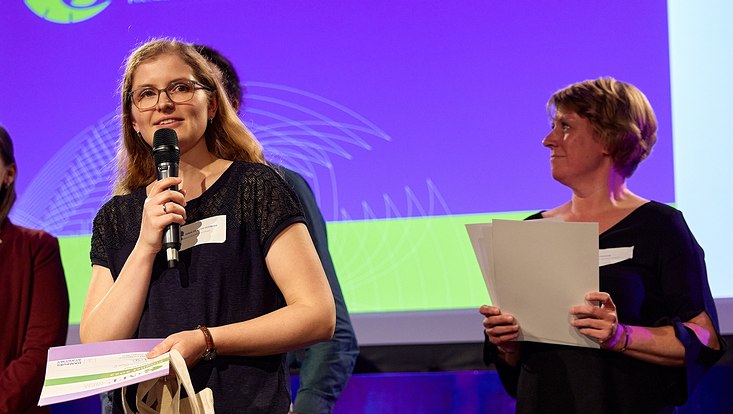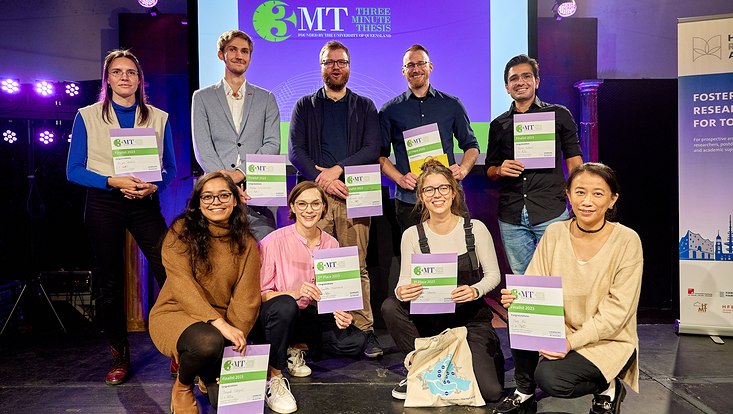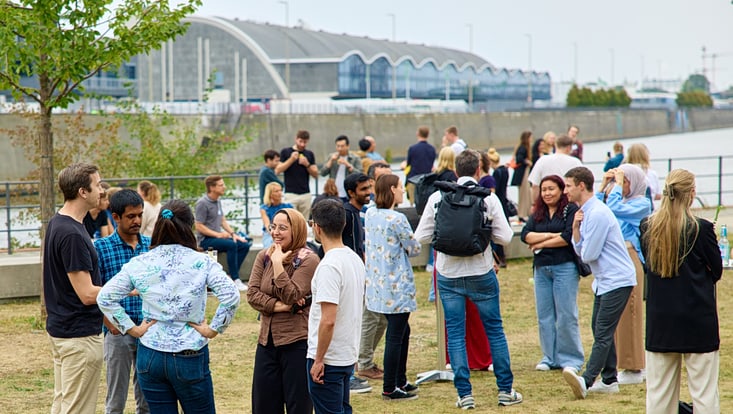1 November 2023

Photo: HRA/Wied
The stage brightly lit, a stopwatch at the ready and hundred curious people in the audience: On 12 October, the Three Minute Thesis competition took place in the atmospheric "Halle 424" in the Oberhafenquartier. Nine doctoral researchers from Hamburg took on a special challenge that evening and presented their doctoral theses in three minutes and with only one presentation slide. The audience joined in the excitement and experienced an entertaining and enlightening evening thanks to the great presentations. The winner of the competition, Saskia Johanns, a doctoral researcher at the Bernhard Nocht Institute for Tropical Medicine, not only took first place with her presentation "How to catch a Virus red-handed", but also secured the audience award. We talked to her about her experiences in an interview.
What was it like presenting on stage?
Definitely exciting. The moment I got on stage, I kind of switched on autopilot and I barely noticed what I was actually saying. Plus, it's really bright up there.
Why did you take part in the 3MT?
For me, one of the best aspects of scientific work is talking to other people about my research and sharing my enthusiasm for the topic. I’m sure everyone knows that feeling when you learn something new and think “Wow, it’s crazy that this exists!”. It's just really nice when you talk to other people about your work and see how the person in front of you experiences exactly that. Creating this feeling in three minutes is of course a challenge.
Did you have any previous experience in science communication or on stage?
In fact, as a teenager, I was on stage a few times as part of a play and a band. However, that was over ten years ago and to be honest I had already forgotten everything. Apart from that, I have spoken about my research twice as part of information sessions at my institute. But I believe that all of us who work in research jobs regularly engage in science communication when we talk to our friends and family about our jobs.
Do you have any advice for other researchers who might want to take part next year?
My first tip is to take the chance. In any case, it was a very exciting experience and I learned a lot. That being said, it really helped me not to commit too early to one version of my presentation. Sometimes it takes a few tries to find a good metaphor or introduction. Discussing your topic in advance with people from outside the field can help to identify gaps in your knowledge or particularly interesting aspects. I also heard that the HRA offers a few helpful courses on presenting and science communication in general... ;)

